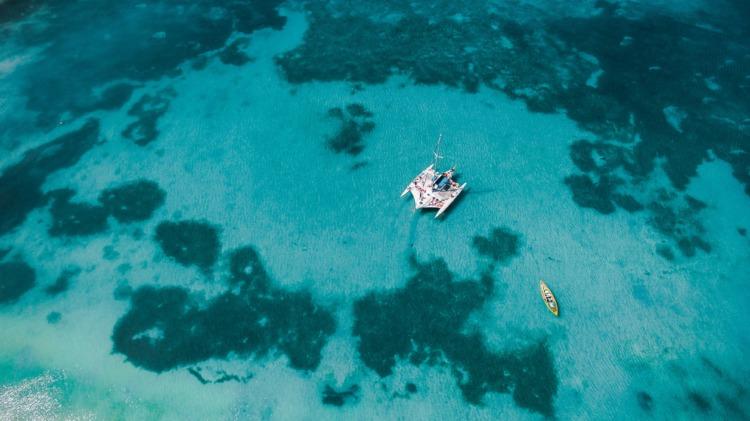Investment in the diverse sectors of the blue economy will help create jobs for the youth in the East African Community.
This is according to the President of Zanzibar, Dr. Hussein Ali Mwinyi, who has called for foreign direct investment from East Africa and beyond in the island’s blue economy.
Dr. Mwinyi said that the island was open for investment in diverse sectors of the blue economy including deep-sea fishing, ports infrastructure, marine transport, petroleum and gas, and tourism.
“Zanzibar also requires heavy investment in modern agriculture, real estate and conference tourism,” said Dr. Mwinyi in a speech read on his behalf by the country’s 2nd Vice President, Hemed Suleiman Abdulla.
“Investment in these sectors will spur business within the East African Community in addition to increasing national revenue and improving the lives of the people of Zanzibar,” said Dr. Mwinyi.
According to the president, Zanzibar had been a centre of maritime and international commerce for centuries with merchants from the island proving their worth in regional and global markets.
Abdulla read the speech during a CEO Evening Round Table Engagement dinner on EAC regional integration dinner convened by the East African Business Council that brought together business people and private sector mandarins from the island. The event was themed “Private sector-led Integration.”
On his part, the Vice President challenged the Zanzibar National Chamber of Commerce to rally the island’s business community for purposes of exposing them to investment opportunities in East Africa and relaying their the challenges they faced to the East African Community Secretariat for resolution.
EAC Secretary General Dr. Peter Mathuki disclosed that the blue economy was dear to the Community, adding that it had huge potential for investment especially for Kenya and Tanzania with shorelines on the Indian Ocean.
“Japan has really made good use of its blue economy. I look forward to a future where East Africa will also be a bastion of the blue economy,” said Dr. Mathuki.
Dr. Mathuki noted that Zanzibar like other East African countries was heavily dependent on tourism which had been severely hit by the COVID-19 pandemic and disclosed that the EAC would soon convene a Tourism Summit on the island to explore ways of mitigating the damaging impact of the pandemic among other issues affecting the sector.
The Secretary General urged the Partner States national standards bureaus to work together to ensure that standards marks on imported goods from other countries were mutually recognised across the board, adding that this would ease cross-border trade in the region.
On the adoption of Kiswahili as an official language of the EAC by the Summit of EAC Heads of State in February, Dr. Mathuki said that the Community was putting in place modalities to actualise this through the East African Kiswahili, an EAC institution established specifically to promote the language and that is based in Zanzibar.
The SG revealed that the EAC would lobby for the adoption of Kiswahili as an official language of the African Union and the United Nations.
In her remarks, EABC’s Manager for Policy, SMEs, Market Access and Gender, Miriam Mondoshai called for the harmonisation of domestic taxes in EAC, namely excise duties, value-added taxes and income taxes.
Mondoshai said that different tax regimes posed a major hindrance to the integration process with a negative impact on intra-EAC Trade and investment. Un-harmonized tax regime hampers the free movement of goods, services, labour and capital, freedoms that were provided for in the EAC Customs and Common Market Protocols. She urged Partner States to implement the EAC Agreement for the Avoidance for the Avoidance of Double Taxation.
“EABC calls for the Commencement of the actual process of harmonization of domestic taxes using a progressive approach by starting with Excise duty and Value Added Tax (VAT) followed by Income Tax and ultimately tax incentives,” said Mondoshai.
On Non-tariff Barriers (NTBs), Mondoshai said that the amendment of the EAC NTB Act 2017 and finalization of its Regulations was long overdue.
“Non-enforcement of the Act is denying the region an instrument that can enhance and facilitate trade by providing a legal framework for the removal of NTBs in the Community; providing for a mechanism for identifying and monitoring the removal of NTB within the Community, and; removing restrictions that make importation or exportation within and outside the Community difficult or costly,” she said.
